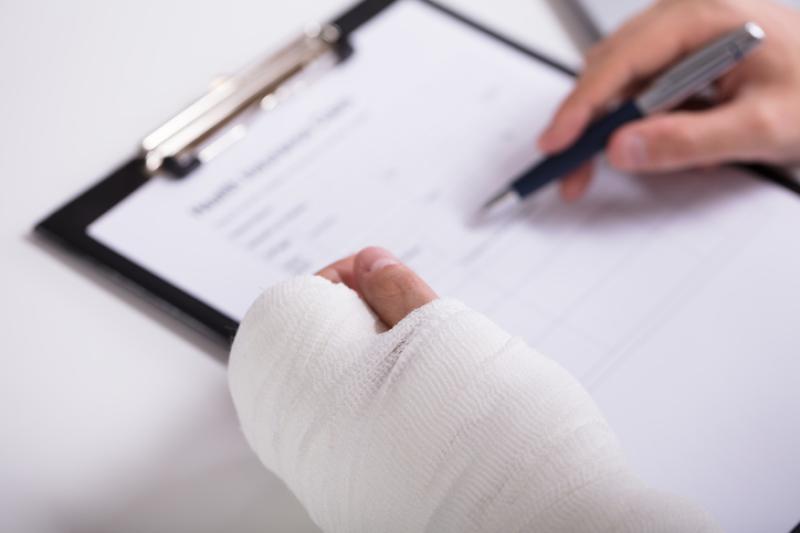What Information Do I Need To File an Injury Claim?

An injury from an accident can be a traumatic and life-altering experience. The aftermath can be overwhelming, whether it's a car crash, slip and fall, or any other type of incident. Amidst the physical pain and emotional distress, you may contemplate filing an injury claim. If you're considering this step, knowing that a successful claim hinges on the information you gather and present is crucial. See what essential information you need to file an injury claim and how an injury lawyer can assist you.
12 Essential Pieces of Information You Need For Filing a Claim
Determining what information you need to file a claim can feel daunting. However, it doesn't have to be! Check out the following checklist to ensure you have all the necessary information for your claim.
- Personal Information: The first step in filing an injury claim is to provide your personal details, establishing your identity and contact information. This information includes your full legal name, address, phone number, and email address.
- Incident Details: Provide a clear and detailed account of the incident that caused your injury. These should include the date, time, and location of the incident. Write down what happened leading up to the accident, during, and immediately afterward. Be as specific as possible and avoid conjecture or assumptions.
- Description of Injuries: List all injuries you sustained due to the incident. These include physical injuries and any emotional or psychological trauma you might have experienced. Medical documentation will be essential to support your claim, so describe your injuries accurately.
- Medical Records: Gathering medical records is crucial for establishing the extent of your injuries and your treatment. Your medical records should include hospital admission, doctor notes, diagnostic tests, treatment plans, and prescriptions. This documentation shows the injuries you claim and their impact on your life.
- Photos & Videos: Visual evidence can be incredibly powerful in supporting your claim. Take clear, high-quality photos of the accident, your injuries, and any property damage. Additionally, you will want to secure copies if you can access security camera footage or dashcam recordings.
- Witness Statements: Gather their contact information and statements if there were witnesses to the incident. Witness testimonies can provide unbiased accounts of the accident and corroborate your version of events.
- Police or Incident Report: If law enforcement was involved, obtain a copy of the police report or incident report. This official documentation can provide additional details about the incident, including the officer's observations, statements from involved parties, and any citations.
- Communication Records: Keep records of any communication related to the incident. These include correspondence with other parties, insurance companies, medical professionals, and relevant authorities. These records can help establish a timeline of events and your efforts to address the situation.
- Insurance Information: If applicable, provide details about your insurance policies, including health insurance, auto insurance, or any other relevant coverage. This information will help determine which insurance policies may be involved in your claim.
- Losses & Damages: Document any financial losses or damages you've incurred due to the incident. It can include medical expenses, property damage, loss of income due to missed work, and any other costs directly related to the accident.
- Expert Opinions: Sometimes, expert opinions may be necessary to validate certain aspects of your claim. For instance, in a car accident case, an accident reconstruction expert might provide insight into the cause of the crash. An injury lawyer can help you identify when expert opinions are needed and how to obtain them.
- Documentation of Communication with an Injury Lawyer: If you hire an injury lawyer, keep records of your communication with them. That includes correspondence, meetings, and any agreements you make. Your lawyer will be crucial in guiding you through the claims process.
The Role of an Injury Lawyer
Navigating the intricacies of filing an injury claim can be overwhelming, especially when dealing with an accident's physical and emotional aftermath. An experienced injury lawyer can be your greatest asset during this challenging time. Here's how they can assist you:
- Legal Expertise: Injury lawyers specialize in personal injury law. They understand the complexities of the legal system and can guide you through the process, ensuring you adhere to all necessary legal requirements.
- Gathering Evidence: A skilled injury lawyer knows what evidence is critical to building a strong case. They can help you collect, organize, and present the information needed to support your claim.
- Negotiations: Insurance companies often try to settle claims for the lowest possible amount. Your lawyer will negotiate to ensure you receive fair compensation for your injuries and losses.
- Calculating Damages: Determining the full extent of your damages can be challenging. An injury lawyer can help you calculate economic and non-economic damages, ensuring you don't settle for less than you deserve.
- Legal Strategy: Every case is unique, and a personalized legal strategy is essential. Your lawyer will develop a plan that maximizes your chances of a successful outcome.
- Contingency Fees: Many injury lawyers work on a contingency fee basis, which means they only get paid if you win your case. This fee structure makes legal representation accessible, even if you're concerned about upfront costs.
Filing an injury claim requires careful preparation and a thorough understanding of the information needed to support your case. You'll strengthen your claim's chances of success by providing accurate and comprehensive details about the incident, injuries, medical treatment, and other relevant factors. Additionally, enlisting the assistance of an experienced injury lawyer can significantly simplify the process, allowing you to focus on your recovery while they handle the legal complexities. Remember, you have the right to seek compensation for your injuries and losses, and the right information and legal guidance can make all the difference in achieving a favourable outcome.
More to Read:
Previous Posts:







